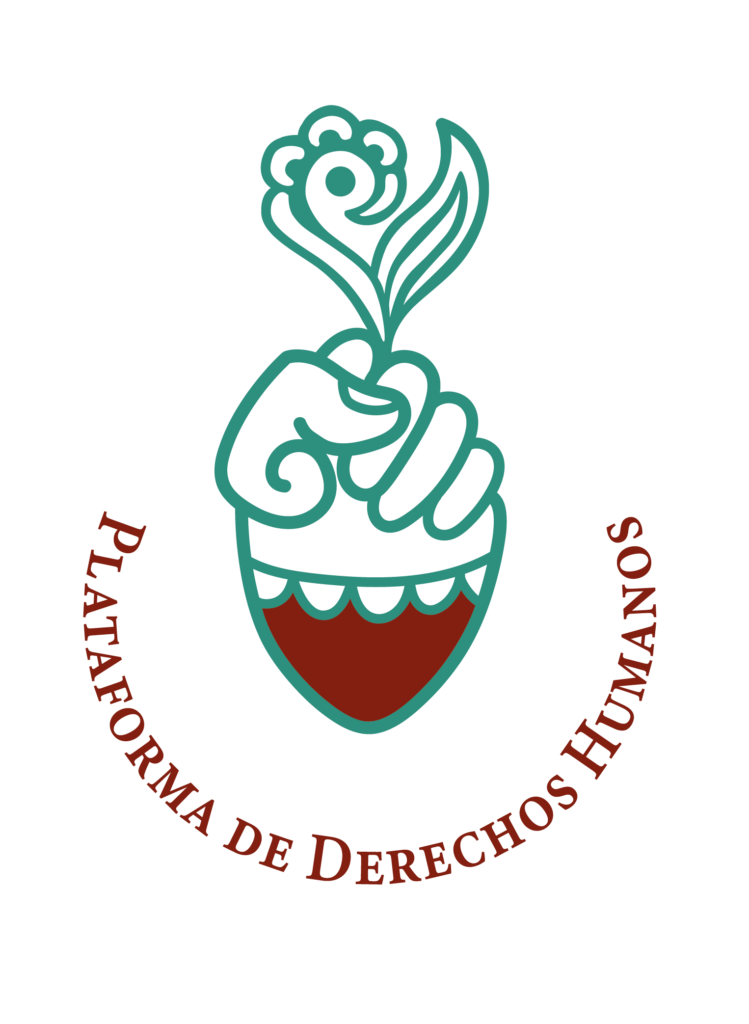STATEMENT FROM THE HUMAN RIGHTS PLATFORM
On May 16 and 17, state authorities carried out “Operación Pescador” at the Central de Abastos in the City of Oaxaca, aiming to address security issues in the area. The civil organizations and collectives that form this Human Rights Platform express our concern about the fate and treatment of the individuals affected. In the images and videos circulating on social media, a lack of coordination is evident, as well as confusion among those detained.
We are particularly troubled by the lack of information and transparency regarding the facilities supposedly housing these individuals. It is well known that many such places operate without proper permits or protocols. In fact, the National Mechanism for the Prevention of Torture of the CNDH (National Human Rights Commission), in collaboration with civil society organizations such as CódigoDH, has documented incidents of torture in several of these centers.
Other key concerns:
• It would be extremely serious if the authorities involved in the operation failed to inform the detained and/or transferred individuals of their rights.
• In cases of detention, it is crucial to clarify the accusations and avoid criminalizing or stigmatizing individuals based on their physical appearance, poverty, abandonment, or even drug use.
• It is essential to know how appropriate care is being provided to the more than 400 unhoused individuals who were reportedly “rescued” according to the authorities.
• Facilities receiving individuals with drug use issues must meet minimum standards for hygiene, infrastructure, medical care, and rehabilitation, in line with NOM-028-SSA2-2009.
Given the above, the Platform supports the actions of the Defensoría de Derechos Humanos del Pueblo de Oaxaca (DDHPO) in addressing complaints and requesting clear and precise information from the institutions involved in the operation, particularly regarding:
• How many people were involved, under what legal status, and at whose request they were transferred.
• The specific locations to which individuals were sent, as well as the protocols for their reception and care.
We also emphasize that the presence of DDHPO personnel during the operation would have been necessary to verify that the human rights of the transferred individuals were respected and protected. This should be done in accordance with Human Rights Standards for People in Street Situations and ensure they receive comprehensive care through measures that provide the minimum conditions for the enjoyment and exercise of all their rights, with respect for their dignity and an intersectional approach.
The Special Rapporteurship on Economic, Social, Cultural and Environmental Rights of the Inter-American Commission on Human Rights (CIDH) has acknowledged the systemic human rights violations experienced by unhoused individuals in the region — violations that worsened during the pandemic. Accordingly, States are under immediate obligation to adopt deliberate, concrete, and goal-oriented measures to guarantee DESCA rights (Economic, Social, Cultural, and Environmental Rights) without discrimination and through appropriate means, including structural and preventive public policies (Organization of American States, Press Release No. 085/23, “CIDH and REDESCA urge States to adopt comprehensive measures for the effective protection of unhoused persons in the Americas,” May 11, 2023; accessed December 1, 2023).
We therefore also call on the State Council Against Addictions (CECA) and the Oaxaca Health Services to visit and supervise the facilities to ensure follow-up for individuals with drug use issues.
We urge the authorities involved in such actions to consider all aspects of their interventions and avoid “social cleansing” practices, which only benefit the tourism sector and worsen issues related to gentrification, failing to consider the rights of the people living in the affected areas. In this regard, we deeply regret the official stance that views “security” and “tranquility” as achievable through the forced removal of people in extreme vulnerability, under the guise of promoting tourism.
To the general public, we call for vigilance regarding the current state of affairs and the follow-up that authorities are required to provide in response to these events.
Forced displacement in various communities across the state of Oaxaca, along with extreme poverty and a lack of job opportunities, are among the main factors pushing citizens into street situations, vandalism, and drug use. For this reason, we call on the relevant authorities to implement well-structured public policies aimed at the people of Oaxaca — their diverse population, not just tourists — to provide real solutions to the pressing social issues we face.
The Oaxaca Human Rights Platform is composed by the followiung organizations:
Caminos A.C., Centro de Acompañamiento a Migrantes A.C., Centro de apoyo al Movimiento popular Oaxaqueño A.C. (CAMPO), Centro de Derechos Humanos Indígenas “Flor y Canto” A.C., Centro de estudios y Fortalecimiento Comunitario Mano Vuelta A.C., Centro Profesional Indígena de Asesoría, Defensa y Traducción A.C. (CEPIADET), Centro Regional de Derechos Humanos “Bartolomé Carrasco Briseño” A.C. (BARCA DH), Circulo Profesional para la Formación con Equidad de Género Nduva Ndandi A.C., Colectivo de Mujeres de Ayutla, Comité de Defensa Integral de Derechos Humanos Gobixha A.C. (CODIGO DH), Defensores por la Justicia, Iniciativas para el Desarrollo de la Mujer Oaxaqueña A.C. (IDEMO), Las Consejeras Oaxaca, Luna del Sur A.C., Piña Palmera A.C., Red Oaxaqueña de Mujeres Trenzando Saberes, Servicio para una Educación Alternativa A.C. (EDUCA), Servicios del Pueblo Mixe A.C., Tequio Jurídico A.C.

